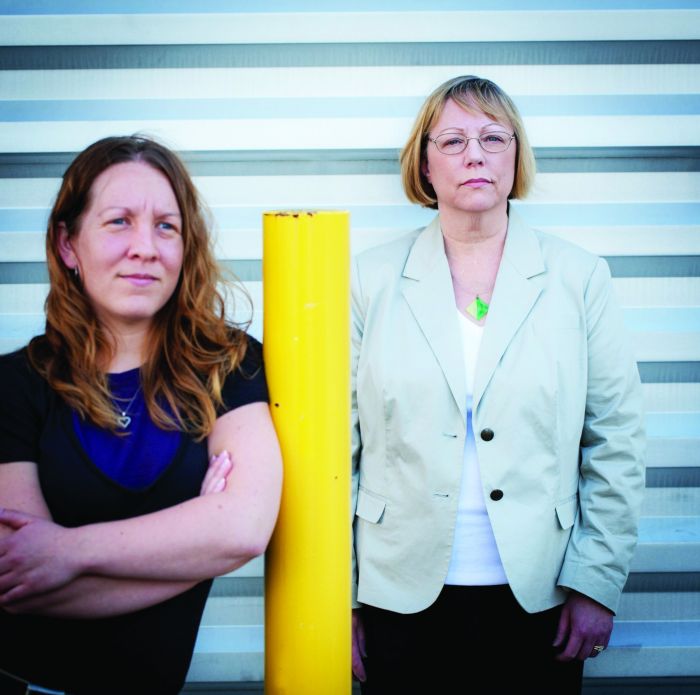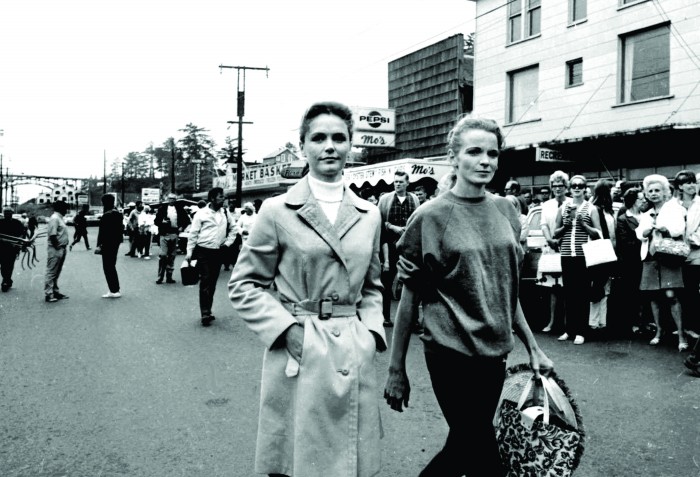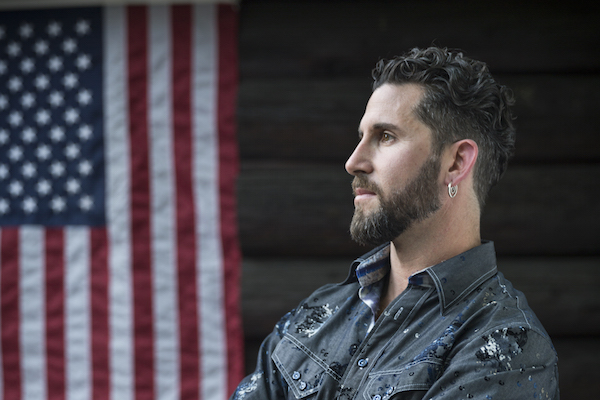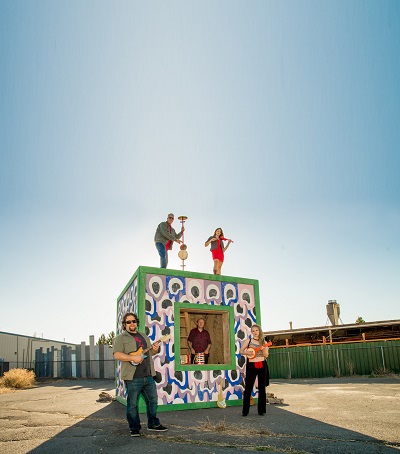It was Fourth of July weekend in Vancouver, Washington, and the startling snaps, pops and explosions from fireworks outside of Mandee Juza’s home immediately transported her back to Iraq. She holed up in the basement, and tried to escape the feeling that guns and bombs were thundering nearby, threatening her life. She was experiencing the effects of post-traumatic stress disorder (PTSD), a common mental illness that has affected veterans of all wars.
During her first tour in the Middle East, her convoy was attacked on every single one of her fifteen missions, and people she cared about died before her eyes. “Every day, as we left the base, the thought was not if we were going to be hit, but when,” she says.
Juza is among the growing number of veterans returning to Oregon and Washington struggling to adjust back to civilian life on their own, and in need of services that the Oregon Department of Veterans’ Affairs (VA) and the Oregon Veterans Center aren’t always able to provide.
Enter the Returning Veterans Project (RVP), founded in 2005 by current board president Carol Levine, a licensed social worker. Her vision was to fill the gap left between the VA, Vet Centers and other government organizations by providing free and confidential counseling, and health care for veterans of the Iraq and Afghanistan wars and their families. Levine recruited twenty-five other therapists who were willing to donate their services, and the nonprofit was born.
“When the war started, I was reading the paper every day, and I could just imagine how hard it would be to go off to war and try to reintegrate into the life you left behind,” says Levine. “There are more homeless Vietnam vets today than were killed in that war, and I didn’t want to see this happen to the next generation.”
Veterans like Juza can sign up for services by visiting the Returning Veterans Project website, (returningveterans. org) for a list of providers ranging from counselors to acupuncturists to massage therapists. “Massage is one of the most popular services we provide, and it is always high in demand,” says Belle Landau, the executive director of Returning Veterans Project. “This is part of the somatic services that the government doesn’t provide, but is so important. When soldiers are deployed, they have to carry equipment that can weigh eighty to one hundred pounds. This causes body injuries, neck, back and shoulder pain.”
Landau became interested in the organization after her son left the Navy and she routinely heard stories about the needs of returning veterans. Prior to taking the helm at RVP, she raised funds and managed nonprofits that delivered violence prevention services for women and children. “What I learned at those agencies helped me to more deeply understand the challenges people face; including our veterans and their families during and after their deployments,” Landau says.
Under Landau’s direction, RVP has grown to 135 active participants. It has seen a 180 percent spike in the use of its services, due to the large number of Oregon National Guard members returning from the Persian Gulf.
“Veterans remain fairly invisible in our communities,” says Landau. “It’s not like Vietnam where the body count was on the news every night. Unless people are listening to NPR every day, there is just a lot less public awareness about the war in general.”
Oregon is one of six states that does not have a base for returning veterans to connect with their military community and access services. The services of the VA and the Vet Center are in such high demand that it can take years for veterans to get help. For those who are suffering from brain injuries or PTSD, two years is too late.
Landau observes that by the time many veterans decide to contact the RVP, they’ve been thrown out by their parents or their spouses, have been unable to keep a job, and have drug and alcohol addictions. They might be just steps away from homelessness.
“Most returning veterans don’t have PTSD,” says Landau. “But for many who do, it can take years for them to admit that they need counseling and other help to heal and begin to finally return all the way home.”
One of the biggest concerns, especially for veterans suffering from mental trauma, is the misconception that their symptoms or experiences aren’t severe enough to warrant professional help.
When Juza finally decided to seek counseling, outside observers would probably have pegged her as a highly functioning, well-adjusted veteran. She worked full time and had started taking night classes towards earning a masters in social work. Yet, she also hid in the basement during fireworks, chain-smoked cigarettes and had very few friends.
“A lot of the skills in the military they teach you are fight or flight. Everything is black and white with no grey area,” Juza notes. “The civilian world is full of grey area, and grey is a scary place. Because of my therapy, I am open to that now, the unknown, and things that are out of my control.”
Juza is set to get her masters of social work this June and plans to put her new skills to work for RVP as soon as she gets licensed.
“I don’t know if I’ll ever be entirely cured of PTSD, but therapy has taken my reactions to things from severe to mild,” Juza acknowledges. “I have the coping skills now to live a healthier life.”
Vital Statistics
20 TO 30 PERCENT of troops returning home from Iraq and Afghanistan have PTSD. Only half seek treatment. Of those, less than half complete treatment.
ABOUT ONE-THIRD of the adult homeless population has served in the military.
30 PERCENT of all service women have been sexually assaulted by fellow troops. It is more likely that a woman in the armed forces will be assaulted by a fellow soldier than killed in combat.
SINCE THE IRAQ AND AFGHANISTAN WARS BEGAN, more Oregon National Guard and Reservists have committed suicide than died in combat.
Making a Difference
– In 2011, 364 Iraq and Afghanistan war veterans and military family members received 2,638 hours of free, confidential care from RVP.
– 134 professionals volunteer their time and care annually for RVP.
– RVP now has providers through the Willamette Valley, St. Helens, Bend, Hood River, Newport, Ashland, Medford, Grants Pass and Clark County, Washington.
How to Help
– Donate to the organization by visiting returningveterans.org.
– If you or someone you know is a service provider, suggest they get in contact with RVP to volunteer.
– If you know a veteran of the Iraq or Afghanistan wars who could benefit from counseling or somatic services provided by RVP, tell them about the organization.










ntutak,I don't think it's too misleading. Saying that the "military and war are not the same thigns" sounds more "misleading" to me. How, exactly, is the military not the same thing as war? The FCNL explains in depth how they arrived at this number at .
thank you for sharing. I work for a company that does conservatorships and is legal custodian to many vets, and we see the effects of ptsd every day as we are asked to oversee
the finances of veteran’s. Some are too proud to go and get help and others aren’t aware it is out there. Getting the word out that there IS help is a HUGE start. Good job